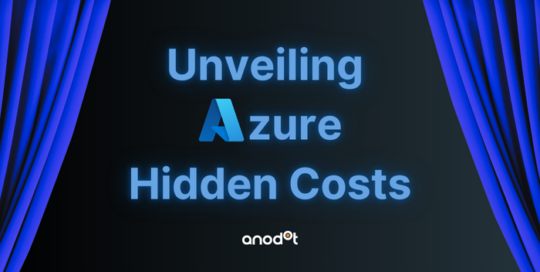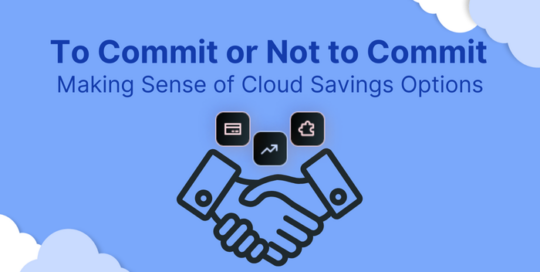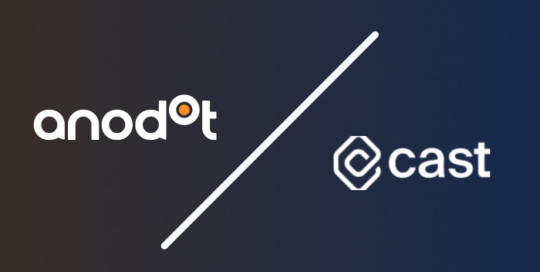Calculating your Azure DevOps budget doesn’t need to make your palms clammy. Consider this your 2025 guide to figuring out all you need about Azure DevOps pricing so nothing sneaks up on your monthly budget.
But let’s define some Azure pricing terms before we get into the nitty-gritty details.
In this article:
- What Are Azure DevOps Services?
- How Does Azure DevOps Pricing Work?
- What Is an Azure DevOps Server?
- Optimize Azure DevOps Pricing to Avoid Breaking Your Budget
What Are Azure DevOps Services?
Azure DevOps is Microsoft’s dev-specific tools and services designed to make it easier for developers, project managers, FinOps, and other contributors to collaborate while building software. It includes the following services:
- Azure Boards: Agile tools designed for cross-team collaboration.
- Azure Pipeline: CI/CD that can automatically build and test code and is compatible with any platform, cloud, and language.
- Azure Repos: Cloud-hosted, unlimited private Git repos that help with application code management.
- Azure Artifacts: Package management that allows developers to store, manage, and share code and other artifacts.
Azure DevOps differs from other Azure pricing models in that DevOps offers more visibility into developmental costs and other optimization opportunities.
However, much like other Azure products, Azure DevOps pricing can get a little tricky since there are so many cost factors.
How Does Azure DevOps Pricing Work?
Azure DevOps pricing is entirely based on what features you and your team need. Since everything is so custom, it can be hard to estimate the final bill. Don’t worry—we’ll guide you through what to expect!
Before we dive in:
Good news—Azure DevOps offers a free plan! The bad news? It’s limited.
The silver lining lies in scaling up: as your user base grows, the cost per user per month decreases, benefiting larger organizations.
Here’s the breakdown of each feature on your Azure DevOps bill.
Users
You get your first 5 basic users for free. After that, each user costs a certain amount depending on the user’s access level.
The tiers:
- Basic users: Users can access all features except Azure Test Plan administration, which involves creating test suites, cases, and plans. Five Basic users are included initially, with each extra user incurring a $6 monthly charge.
- Basic+Test Plan users: These users have access to the Azure Test Plans administration and all the access available to a Basic user. Each Basic+Test Plans user costs $52/month.
- Visual Studio subscriber: A Visual Studio subscription includes an Azure DevOps Services license! So, if you’re already receiving your monthly $150 credits, you can consider yourself an honorary Basic DevOps user.
- Stakeholder: This access level is free! Whoo! Stakeholders have similar functionality to Basic users but cannot access Azure Repos or certain advanced features on Azure Boards.
Azure Active Directory
Azure Active Directory (or AAD) is by no means required but offers much better security support as it forces users to use 2FA/MFA. AAD can be used for limited but free use, but if you want to use Conditional Access Policies, you’ll have to start to pay. If you want to beef up your security, it’s worth looking into.
Azure Pipelines
Azure Pipelines is your go-to CI/CD configuration and run tool. You can run on any agents while building, deploying, and testing. Pricing is based on the number of parallel (CI/CD) jobs you run.
You start with one free hosted agent, a job, and 1,800 minutes of usage. Going beyond that threshold will cost you $40 per every additional Microsoft-hosted CI/CD. For every additional self-hosted CI/CD parallel job, it’s $15 extra.
BONUS: If you have Visual Studio Enterprise subscribers, you get one Self Hosted Pipeline for free!
Azure Artifacts
Azure Artifacts includes 2 GiB free and $2 per GiB after that threshold. If you reach 10 GiB (2 GiB free plus 8 GiB paid), you start to get discounts!
Azure Artifacts include sophisticated access controls, integration with Azure Pipelines, support for Maven, npm, and Python packages, upstream sources to protect dependencies on open-sources, and industry-leading NuGet Servers.
Subscription type
When you make your first Azure purchase, you’ll be prompted to pick an Azure subscription type. Your Azure DevOps prescription can be pay-as-you-go, part of your Enterprise Agreement, Cloud Solution Provider (CSP), or another Azure subscription.
Support plans
Azure DevOps only offers paid support if you can’t find the help you need on the self-service pages. There are three levels, starting at $29/month and increasing as high as $1,000/month.
Related content: Read our guide to Azure Functions Pricing and Azure SQL Pricing.
What Is an Azure DevOps Server?
Azure DevOps Server is the self-hosted, on-premise solution that Azure DevOps offers.
Prices start at $45 per user and can increase to $499 per user, depending on the additional services and platforms required. You can pick either monthly or yearly billing.

Elisha Ben Zvi
VP R&D, Anodot
Elisha is a seasoned R&D leader with over 20 years of expertise in AI-driven business monitoring and cloud cost management.
TIPS FROM THE EXPERT
1. Use parallel job scaling cautiously
Avoid overcommitting to additional parallel jobs unless absolutely necessary. Azure DevOps provides one free hosted agent with 1,800 minutes per month. Carefully evaluate if more parallel jobs are needed before incurring $40/month for each additional job.
2. Monitor Azure Artifacts storage usage
Keep an eye on your Azure Artifacts storage usage to stay within the 2 GiB free tier. If your storage needs exceed this, reduce storage requirements by cleaning up old or unused artifacts, or consolidate dependencies across teams to avoid unnecessary duplication.
3. Choose the right support plan
Unless you have complex requirements, opt for the basic Azure DevOps support plan. This level of support provides sufficient coverage for most teams without significantly increasing monthly operational costs.
4. Bundle Azure DevOps with Azure Credits
Maximize cost savings by combining Azure DevOps with Azure credits offered through Visual Studio subscriptions or other Microsoft programs. This can offset costs for both your DevOps and broader Azure usage, especially in the first few months of your deployment.
5. Use Anodot for advanced cost management
To avoid surprises, integrate third-party cost management tools like Anodot, which provide real-time anomaly detection and customized alerts. Anodot’s dashboards and forecasting tools can help you visualize your Azure DevOps expenses and optimize resource usage proactively.
Optimize Azure DevOps Pricing to Avoid Breaking Your Budget
Azure DevOps pricing doesn’t have to send your accounting team into a cold sweat! You can always use Azure’s cost management tools… but you’ll run into this one (big) drawback: Using cost-savings tools provided by the company you’re paying doesn’t incentivize said company to provide the best cost savings.
If you really want to optimize your Azure DevOps spending, you’ll need outside help. With Anodot’s cost management tools, you can get data down to the hour with retention periods of up to 18 to 24 months – and easy-to-understand dashboards and budget projections. That means you can get all your multicloud and K8 data in one place!
Other Anodot features include:
- AI-Powered Support: Provides actionable AI-powered support for efficient resource utilization and cost reduction.
- Customizable Alerts: Enhances understanding and responsiveness with tailored alerting systems.
- Next-Level Forecasting: Utilizes predictive analysis for accurate future cloud spending and budgeting.
- Multicloud Support: Offers comprehensive visibility and control across different cloud platforms.
- Real-time Anomaly Detection: Quickly identifies unusual spikes in cloud costs for proactive management.
- Personalized Dashboards: Easy to customize dashboards to help you visualize your DevOps cost-savings.
Anodot demystifies cloud costs for FinOps organizations and helps you save up to 40% on annual cloud spending. Anodot’s AI-powered insights mean you barely need to lift a finger to optimize your resource utilization. With features like real-time anomaly detection and customizable alerts, you won’t have to worry about overspending again. Get all the forecasting support you need while building customizable dashboards to track the money you’re saving.
Need proof of concept? Talk to us for more insight into cloud usage, costs, and how much you can save with Anodot’s tools.






